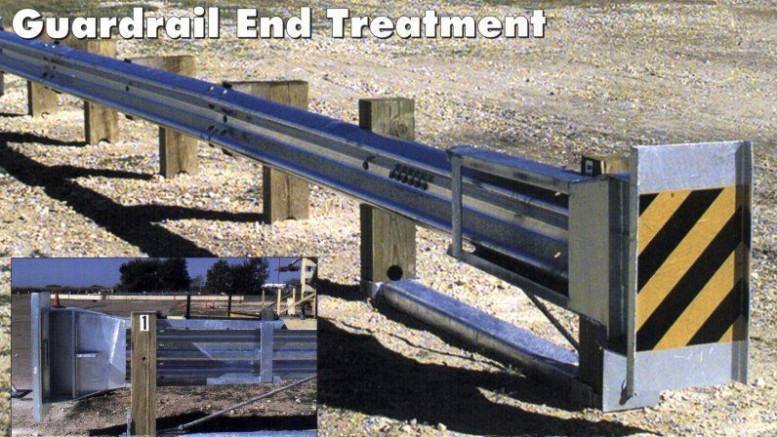Update: The original version of this column contained the wrong date for a highway commission meeting. The headline was misleading because of that incorrect date and has been changed.
When a federal judge in Texas handed down a $663 million fraud verdict last summer against the Dallas-based maker of guardrails used on highways all over the country, a lot of people started seeing dollar signs, including a few in Missouri.
Since that June verdict, which stemmed from a whistle-blower complaint, Trinity Industries Inc. has faced a slew of lawsuits from states, cities and counties, as well as several wrongful death actions filed by individuals.
At issue is whether Trinity improperly changed the design of the end-terminals on guardrails that are supposed to absorb impact to protect accident victims from harm. The company is fighting allegations that the changes made to the design create a possibility that shards of metal will break off and cause physical harm or death to drivers or passengers.
In Missouri, one lawsuit in particular bears watching.
Filed in November by Jackson County, the lawsuit seeks class action status in alleging negligence by Trinity in designing the “ET-Plus” guardrail end terminals that are found throughout the state. The lawsuit alleges the terminals are “defective, unsafe and unreasonably dangerous.”
The proposed members of the class — which would have to be approved by the judge — include the city of St. Louis, St. Louis County and the Missouri Department of Transportation, or MoDOT.
Missouri has been at the forefront of the national debate over the Trinity guardrail end terminals.
In 2014, Missouri was one of the first states in the nation to stop using the Trinity ET-Plus end terminals. That decision came after a University of Alabama study paid for by the nonprofit Safety Institute and the Missouri transportation commission found the Trinity terminals were nearly four times more likely to be involved in a fatal wreck.
Now Jackson County — with the state potentially riding along — is suing Trinity for potentially hundreds of millions of dollars.
The lawsuit was filed by John Schirger of the Kansas City law firm Miller Schirger.
The “Miller” in Miller Schirger is Stephen R. Miller, who happens to be the vice chairman of the Missouri Highways and Transportation Commission, which oversees the transportation department. Miller was the chairman of the commission at the time the lawsuit was filed.
It would seem quite a potential conflict of interest for Miller’s six-attorney firm to file a lawsuit with such a direct connection to the transportation commission. While MoDOT is not yet a member of the class, and the commission would have to approve such a move in a future vote, the potential for Miller to profit from his public service is obvious.
So how did Miller’s firm get the Jackson County business?
Jackson County counselor W. Stephen Nixon didn’t return calls for comment. He has been criticized lately for the county’s habit of issuing no-bid contracts, including a consulting contract recently to former county executive Mike Sanders.
Asked about the lawsuit and the potential for conflict of interest, Miller said, “I can’t comment on that.”
The commission’s ethics policy requires any attorney who believes their firm is handling a case that might be “adverse” to the commission or MoDOT to file a disclosure.
When asked for any disclosures Miller made to the commission regarding a lawsuit against Trinity Industries, the commission produced only minutes from a closed meeting in February 2015.
In that meeting, held Feb. 3-4, MoDOT director Dave Nichols addressed the commission regarding “guard rail end treatments legal issues.” After discussion began about the “possible procurement of counsel,” Miller recused himself.
Here’s where it gets even more curious.
In its letter to me, signed by Pamela J. Harlan, the secretary to the commission, the state asserts that Miller’s recusal in a closed meeting is “attorney client privilege and exempt from disclosure under the Missouri Sunshine Act.”
In other words, even if Miller did disclose a potential conflict of interest, the commission believes it could keep that from the public.
It didn’t — at least once I asked about it — but what happens the next time some member of the public seeks accountability from the state’s transportation commission? What good is disclosing a conflict of interest involving public money if the public isn’t allowed to know about it?
Trust us, the commission seems to be saying. That’s not going to fly in the Show-Me State.
Source: www.stltoday.com




